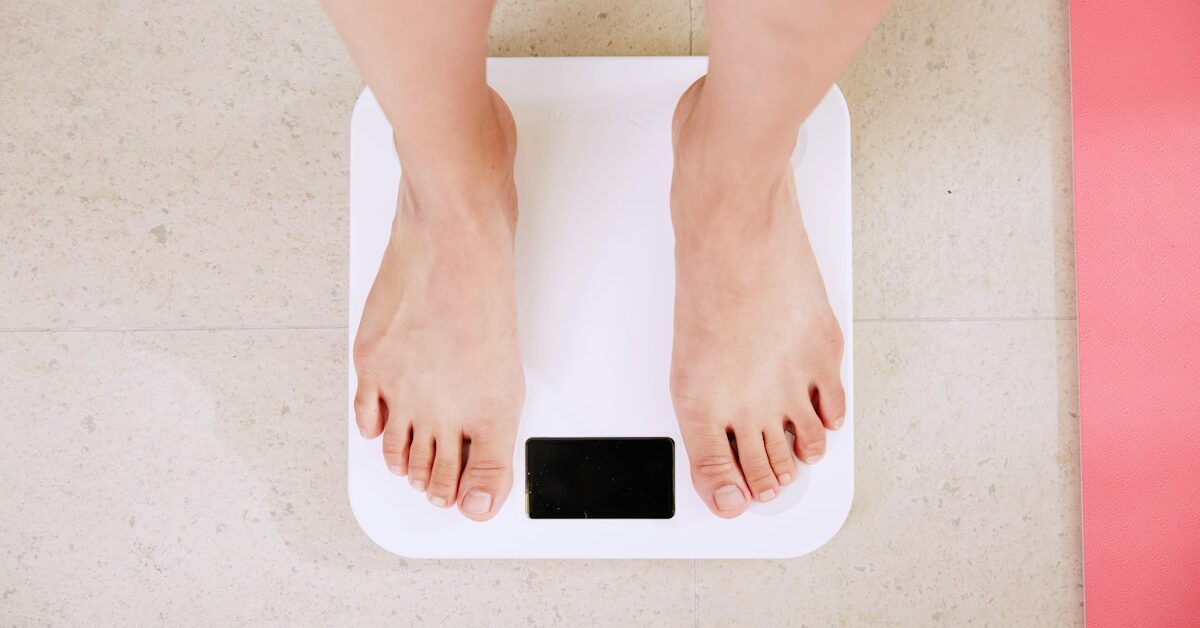Most people don’t see fat loss progress because they give up, and most people give up because they misinterpret the scales and the fluctuations they are seeing.
If I do my job correctly, hopefully this article will give you all the information you need to understand why your body weight fluctuates and how to interpret and use the scales as a measure of fat loss progress correctly.
Firstly, let’s set the record straight on a couple of things..
- Scales are an extremely poor measure of short term fat loss, therefore they should not be used to measure fat loss on a daily basis but rather a weekly or monthly basis.
- Scales measure your total weight, not fat mass. In some cases, it is possible to lose body fat but for your body weight to stay the same.
Did you actually gain weight over the weekend?
A lot of you will step on the scales on Monday morning and get the fright of your life. You’ve put on a couple of pounds and all of your hard work from last week is ruined, right?
Wrong! Let’s do some quick maths;
1lb of fat equates to 3,500 calories. Therefore, for you to have put on 1lb of fat, you would have had to have eaten over and above your maintenance calories by 3,500 calories. Let’s say your maintenance calories are 2000, you would have had to have eaten 5,500 calories in one day, to gain a pound of fat.
It is VERY unlikely that this is the case. What’s VERY likely to have happened, is that you’re retaining water (which weighs something) and this is being reflected on the scales.
Factors that cause your weight to fluctuate
Most commonly, weight fluctuations are due to water retention. This can occur for a variety of reasons;
- Carbohydrate intake; carbohydrates are broken down and stored in the liver and the muscles as glycogen. For every 1g of glycogen stored, we also store 3-4g of water. So a higher carbohydrate intake will lead to increased water storage and therefore an increase in scale weight (even if you have still been eating in a calorie deficit).
- Hormonal fluctuations; the changes in estrogen and progesterone that a women experiences in the days leading up to her period can also cause changes in fluid balance and therefore water retention.
- Weight training; when you weight train, there is an increase in blood flow to the muscles which causes them to swell, causing a temporary increase in body weight. In addition, weight training causes small tears in your muscle fibres which can lead to inflammation. Again, like the examples above, this can cause a temporary increase in body weight.
Other common reasons as to why your weight may be fluctuating could be due to;
- Food volume; an increase in food volume means you’re consuming more weight in food, even if you’re still in a calorie deficit.
- Bowel movements; if you’re constipated or your bowel habits are not regular, you simple aren’t excreting the food that you have ingested, therefore causing you to weigh heavier.
Should I still use the scales as a measure of fat loss progress then?
My answer is, it depends.
If you’re someone who is consistently discouraged by the fluctuations you see on the scales, despite reading and understanding the above, I would say you’re better off saving yourself from that mental burden and tracking another measure of progress instead, e.g. fortnightly progress photos.
If you understand the mechanisms by which weight fluctuations happen and don’t let them discourage you on a weekly basis, then go for your life.
How should the scales be used?
There are many differing opinions on this, my recommendation and the method I use with clients is to weigh yourself 3-5x per week and take the weekly average.
So long as your weekly average is declining on a weekly or a biweekly basis, you know you are losing fat.
DOs & DONT’s when weighing yourself
- DO weigh yourself first thing in the morning, after you’ve been to the bathroom and before any food or water.
- DO keep your scales in the same spot, preferably on a hard wood floor rather than a carpet.
- DON’T weigh yourself the morning after a social event or a big meal, it will only show you that you’re bloated and holding water from the night before.
- DON’T weigh yourself on different sets of scales, keep them the same.
